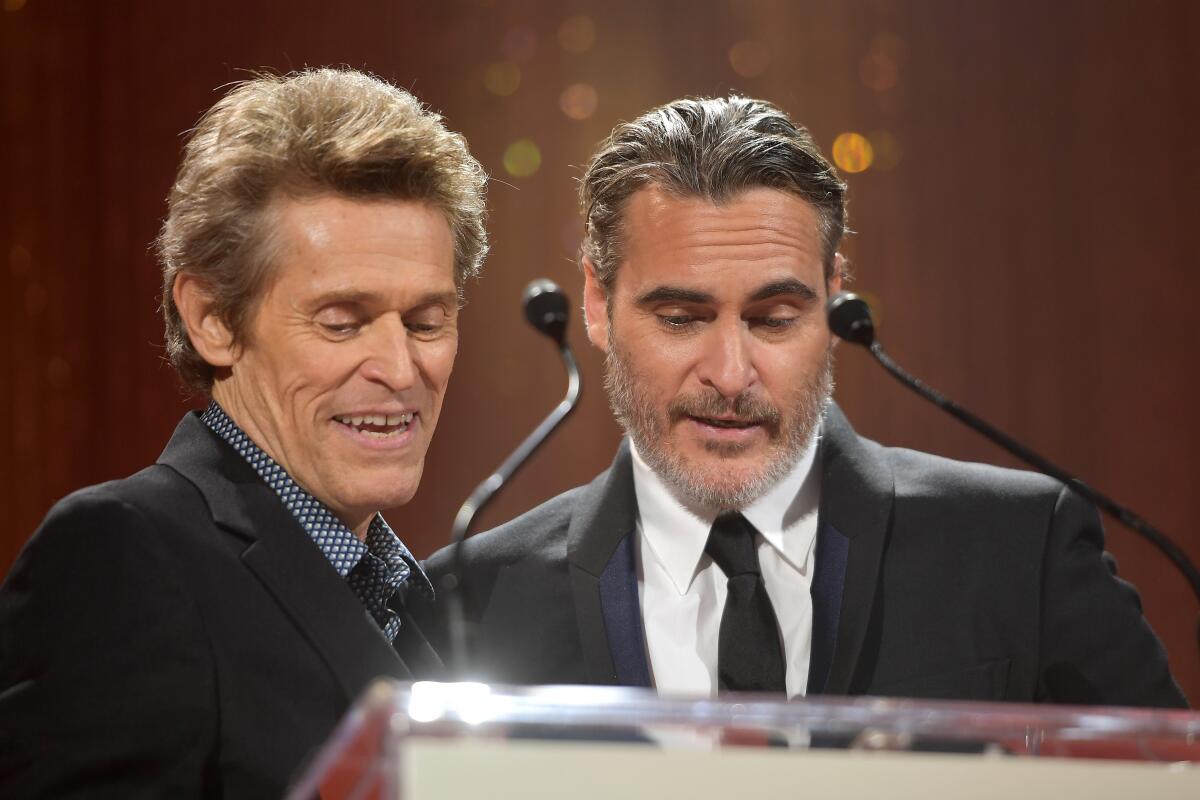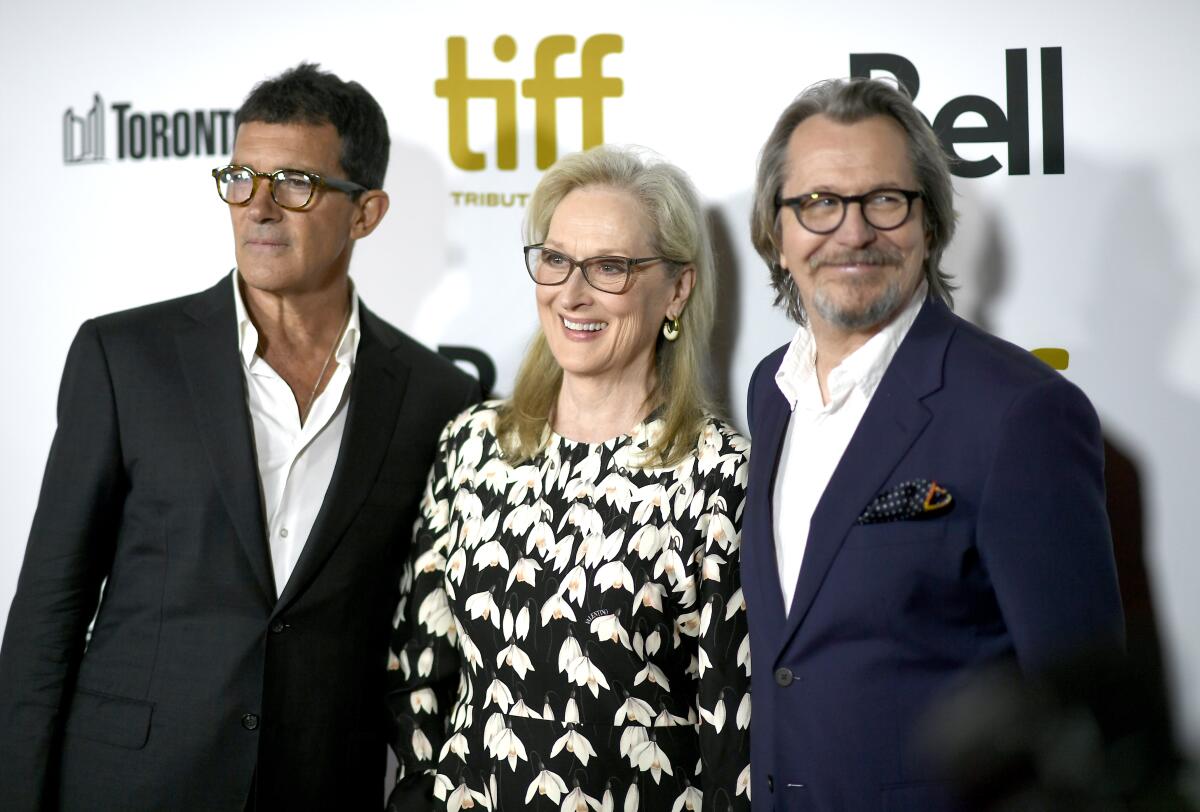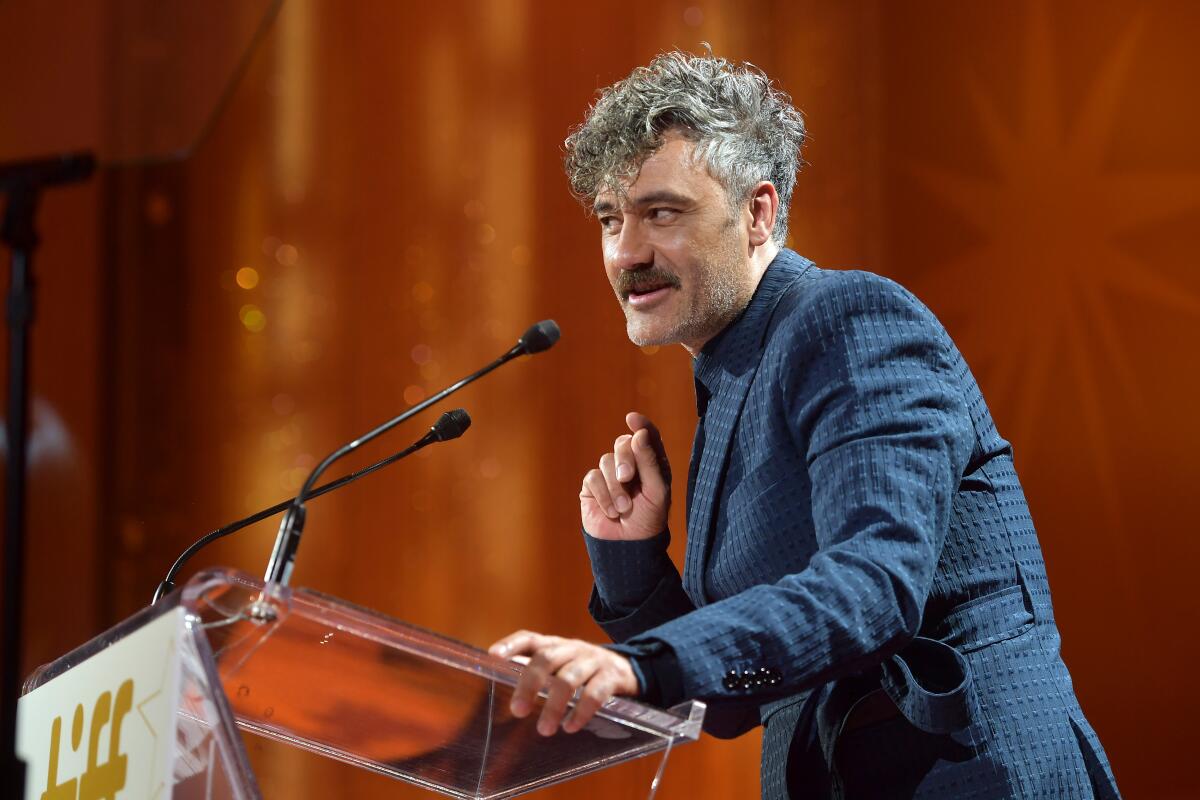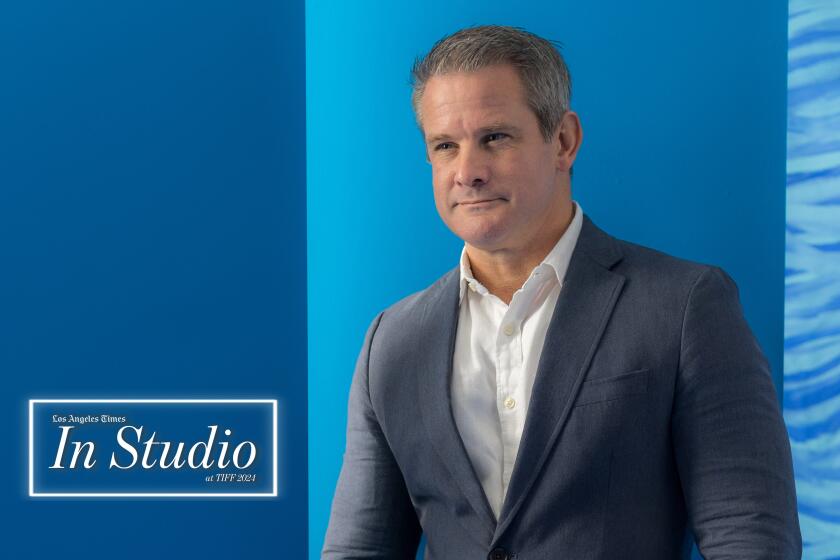Joaquin Phoenix, Meryl Streep deliver emotional speeches at TIFF tribute gala

- Share via
TORONTO — The moment it came time for Joaquin Phoenix to accept an honor at the Toronto International Film Festival’s first-ever awards gala, he nearly turned around and walked away.
“Thank you and good night!” jested the “Joker” star, pretending to leave. “I want to, I want to!”
The actor has routinely shrugged off the spotlight of such events in the past, and even interrupted Willem Dafoe’s praise-filled introduction. But Phoenix found himself moved by the pre-speech reel of clips that encapsulated his filmography. “I’m so embarrassed to admit this, but I feel overwhelmed with emotion. I’m just thinking about all the people that had a profound influence on me throughout my career.”
Among them is River Phoenix, his late brother. “When I was 15 or 16, my brother, River, came home from work and had a VHS copy of a movie called ‘Raging Bull,’” he recalled. “He sat me down and made me watch it, and the next day, he woke me up and made me watch it again. And he said, ‘You’re gonna start acting again; this is what you’re gonna do.’ He didn’t ask me; he just told me. I’m indebted to him for that because acting has given me such an incredible life.”
After also thanking his parents, Phoenix closed his speech with what might have been a reference to his partner, “The Girl With the Dragon Tattoo” actress Rooney Mara. “Somewhere here — I don’t know where — is a filthy dragon, and I want to rip its wings off and fasten a blanket and sleep with it forever,” he said. “I love you.”

Also honored at the Monday night event was Meryl Streep, who received the actor award from fellow “Laundromat” cast members Gary Oldman and Antonio Banderas. “Look at me — I’m 70 [years old] and I got these guys!” she exclaimed onstage, touching the chests of her costars.
After applauding Canada for famous figures such as Joni Mitchell, Justin Trudeau and Margaret Atwood, she thanked the film festival for prioritizing the inclusivity of female directors and stories in its programming.
“Lately, I’ve been asking myself a question,” she said of picking her projects. “Does this help or does this hurt? Is this piece of material something that needs to be in the world right now, for whatever reason? And even if it doesn’t help, even if it’s just silly and fun, does it, on the other hand, do damage? Does it make us complacent? What is it, what is it?
“Every artist here has made a choice about the material that they’ve done; they’ve decided to contribute something, either by default or by intention,” she continued. “This festival is moving the needle by intention. And even though we didn’t create the moment that we find ourselves in, we can’t cure it individually, we can’t control it, but we sure can contribute to its toxicity.
“I just want us all to be really mindful,” Streep concluded. “Time is short — as you reach a certain milestone you realize that. So we should all do the things that count, even if it’s just to get a laugh.”

Later in the evening, “Jojo Rabbit” helmer Taika Waititi got plenty of laughs in accepting the Ebert director award from Guillermo del Toro. After many jokes and impressions, he spoke of his upbringing in an indigenous community in New Zealand, with a population of only a few hundred people, “which makes it almost impossible to find a girlfriend. The opening line if you go to a party is, ‘Who’s your mom and dad?’ ” he joked.
“Film was not on any list of job opportunities,” he continued, amid many more crowd-pleasing tangents. “I really do feel like I get to tell our stories. ... It’s never lost on me.”
“The Goldfinch” cinematographer Roger Deakins, “Atlantics” director Mati Diop, and Participant Media founder and chairman Jeff Skoll and Chief Executive David Linde were also honored at the gala, held at Toronto’s Fairmont Royal York.
David Foster accompanied his own tribute with performances of some of his biggest hits, originally sung by Celine Dion and Whitney Houston and performed that evening by Pia Toscano and Sheléa. Between songs, the Canadian music producer, songwriter and subject of the documentary “David Foster: Off the Record” told attendees about how his Peter Cetera song “The Glory of Love” lost the Oscar to Berlin’s “Take My Breath Away.”
“They didn’t finish the [freaking] lyrics and they won the Oscar!” joked Foster, who said he’s convinced that if “The Glory of Love” were for “Top Gun” instead of “The Karate Kid II,” it would’ve been a winner. He even rolled a clip, pairing “Top Gun” footage with Cetera’s track, to prove his point.
“We will never know,” he lamented. One thing he does know, though: “I hate that movie ‘Top Gun.’”
More to Read
Only good movies
Get the Indie Focus newsletter, Mark Olsen's weekly guide to the world of cinema.
You may occasionally receive promotional content from the Los Angeles Times.












